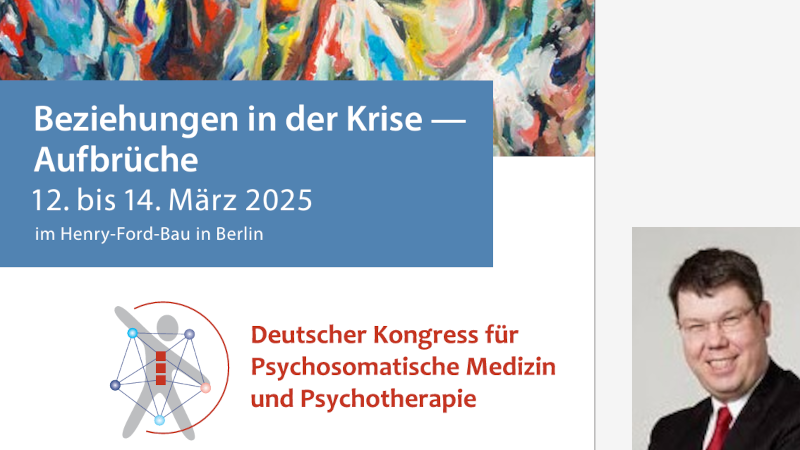
At Munich Business School, we believe resilience is not just a personal trait — it’s a professional necessity. That’s why resilience management is part of our curriculum.
MBS professor for Human Resources, Arnd Albrecht, is currently exploring how future leaders develop resilience during their studies. At the 32. Jahrestagung der Deutschen Gesellschaft für Psychosomatische Medizin und Ärztliche Psychotherapie (DGPM) [32nd Annual Conference of the German Society for Psychosomatic Medicine and Medical Psychotherapy] and the 75. Arbeitstagung des Deutschen Kollegiums für Psychosomatische Medizin (DKPM) [75th Working Meeting of the German Association for Psychosomatic Medicine] in Berlin, he presented a longitudinal study following 150 international business students over several semesters.
The findings? Stress levels consistently peak during exam phases. But more importantly, internal stressors — such as fear of failure and overthinking — clearly dominate over external ones. Many students find it difficult to unwind without guilt, to delegate, or to stop ruminating.

Interestingly, those who embrace external support tend to show stronger coping mechanisms over time — pointing to the importance of interpersonal openness in developing resilience.
The takeaway? If we want our graduates to thrive as leaders in an unpredictable world, we need to address resilience not as a side topic—but as a core part of higher education.



